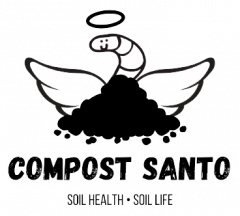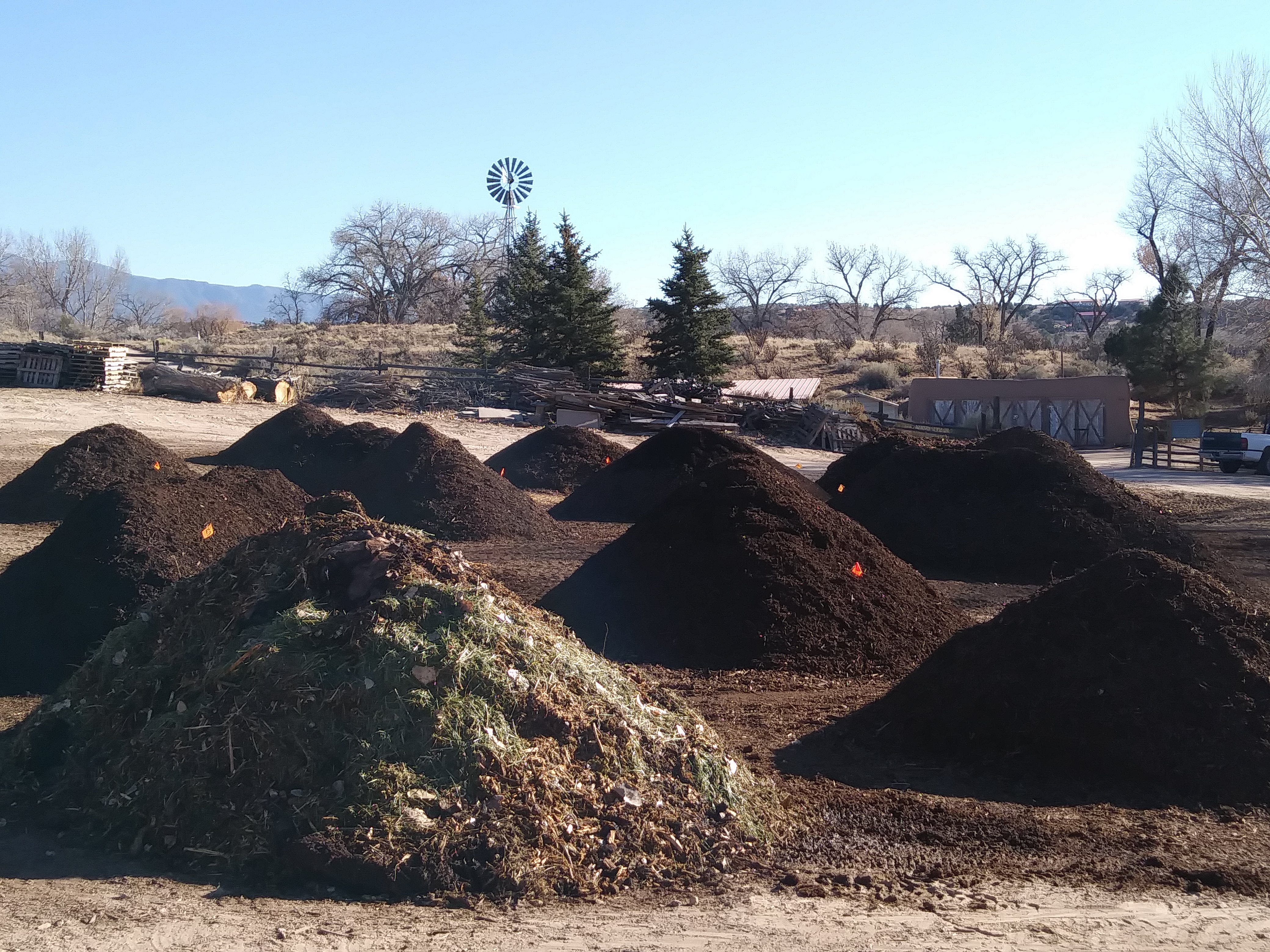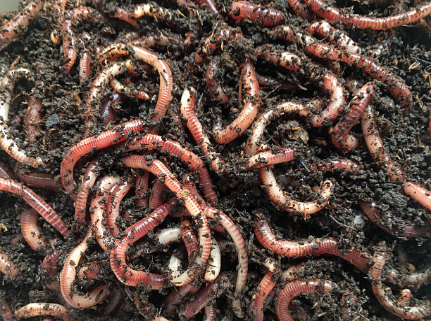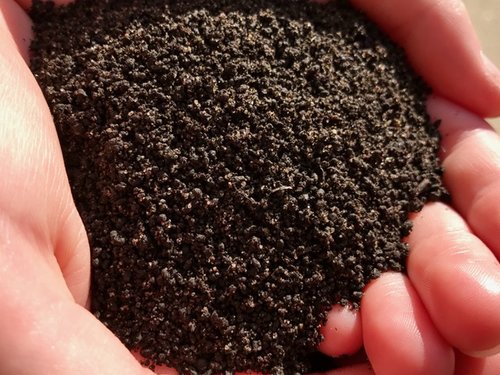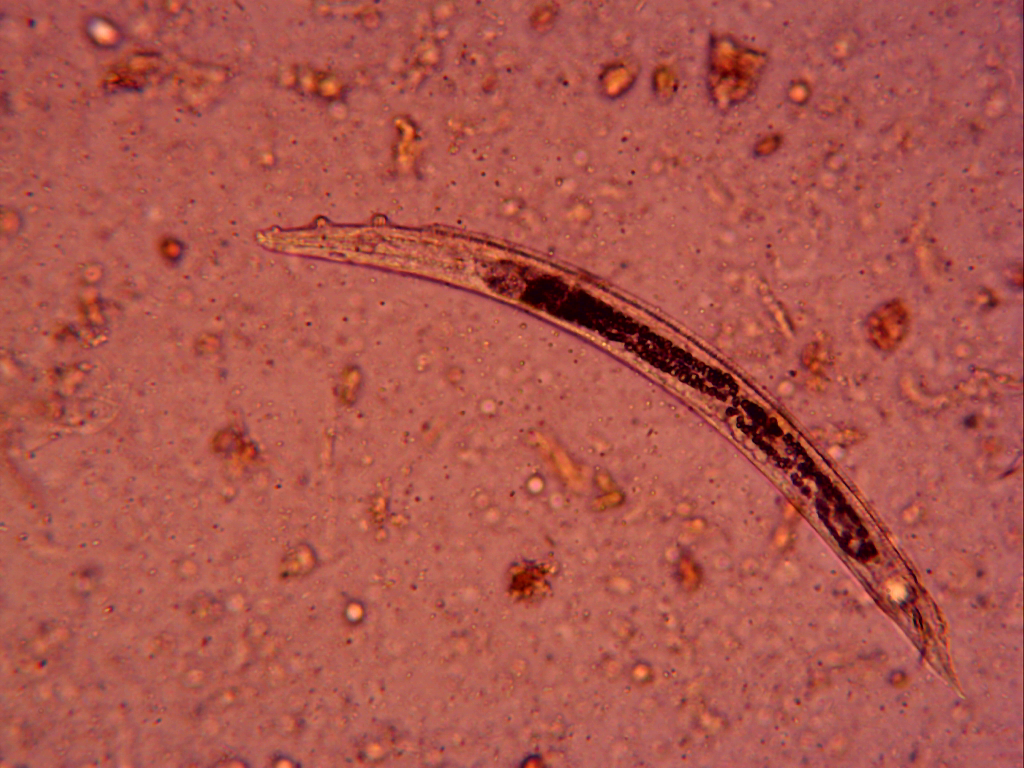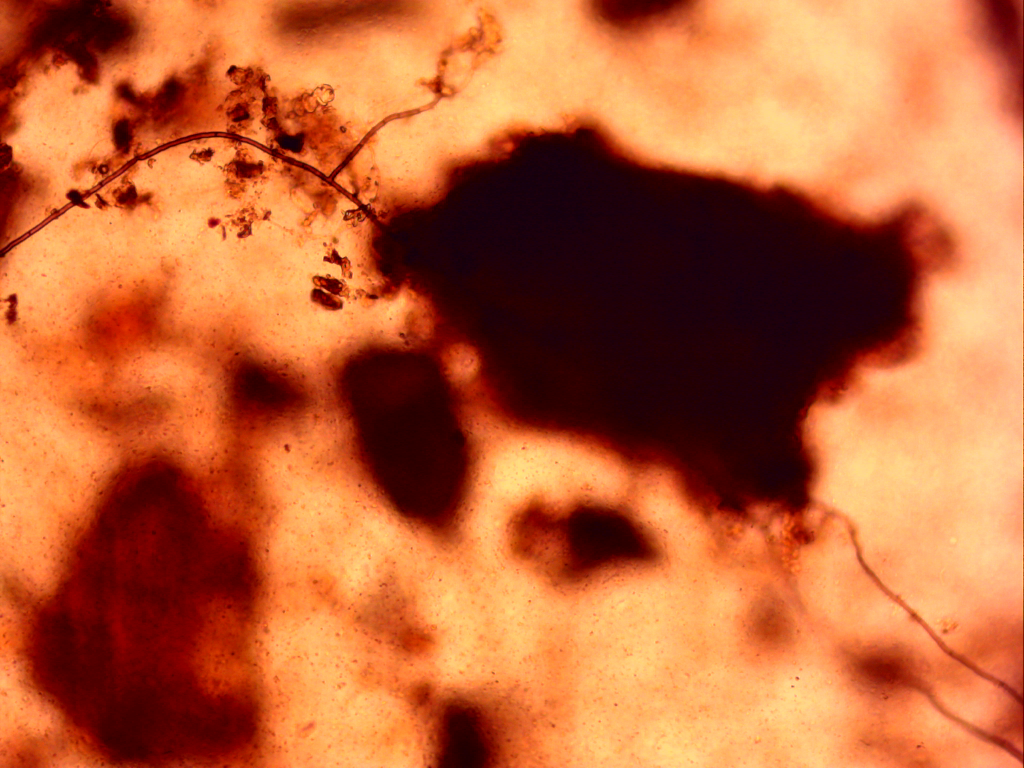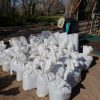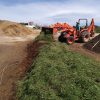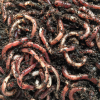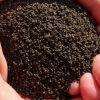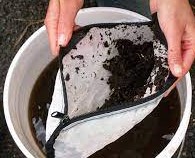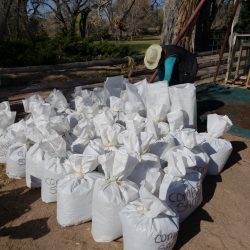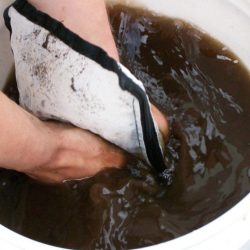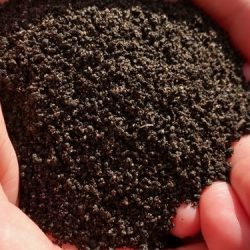Description
About Our Robust Farm Compost
At Compost Santo we take extra careful measures to craft what is commonly referred to as Robust Compost (also known as living compost, or biologically-active compost).
Robust Compost contains the full spectrum soil ecosystem; this includes bacteria, fungi, archaea, beneficial nematodes, amoeba, flagellates and micro-arthropods. Our living compost often also contains other types of life, including tardigrades, diatoms, algae, earthworms and other types of protozoa.
Our Robust Farm Compost is made using on-site farm vegetative waste and off-site manures and beer mash. Our compost is made by heating unprocessed organic matter in piles that are turned regularly to maintain optimal temperatures, moisture and oxygen levels – a process referred to as thermal aerobic composting.
Thermal aerobic composting refers to the decomposition of organic matter using microorganisms that require oxygen and high heat. The heat produced in aerobic composting is sufficient to kill harmful bacteria and pathogens as these organisms are not adapted to these environmental conditions. It also helps support the growth of beneficial bacteria species by eliminating their pathogenic competitors.
Once our piles reach ambient temperatures, we begin the curing process. At Compost Santo we make sure to age our compost long enough to encourage lower pH levels, a finer texture, and a higher concentration of nitrate-nitrogen levels (instead of ammonium-nitrogen). Ammonium is a major inorganic nitrogen source for plants. At low levels, ammonium promotes plant growth, however at high levels it can cause toxicity problems.
About Our Worm Castings
Our worms are fed a healthy diet that consists of leaf mulch, hay and grass clippings, fruit and vegetable waste, and coffee waste. We also supplement with rock minerals (such as azomite), humic acids, and other natural sources of vitamins and minerals.
About our mix
Our special mixed bags are made with 90% sifted farm compost to 10% Worm Castings.
WHAT ARE WORM CASTINGS
Worm castings contain a highly active biological mixture of bacteria, enzymes, remnants of plant matter and animal manures. Worm castings are rich in water-soluble plant nutrients and contain more than 50% more humus than what is normally found in topsoil.
Worm castings are jam-packed with minerals that are essential for plant growth, such as concentrated nitrates, phosphorus, magnesium, potassium and calcium. It also contains manganese, copper, zinc, cobalt, borax, iron, carbon and nitrogen. The best of all is that these minerals are immediately available to plants, without the risk of ever burning their roots. As the organic matter moves through the earthworm’s alimentary canal, a thin layer of oil is deposited on the castings. This layer erodes over a period of 2 months.
Worm castings are also chock full of plant growth promoters like gibberellins, cytokinins and auxins, along with increased levels of micronutrients like calcium, magnesium, and sulfur.
BENEFITS OF WORM CASTINGS
Added to soil or potting mixes, the organic matter in castings improves soil structure. With more humus than traditional compost or normal garden soil, castings increase the water retention in soil, improve soil aeration and anchor plant nutrients that would otherwise leach away with water. Organic matter feeds soil microorganisms that produce, store and slowly release plant nutrition. Earthworm castings suit all indoor and outdoor gardens.
- Increase yields – In the farming business, yield can make all the difference. Worm castings have the ability to increase yields by more than 25% on many crops.
- Disease protection – Depending on the disease, it could completely devastate your crops. By planting your crops with worm castings, they’ll have a protective barrier around them throughout their life cycle.
- Use less water – Many farms have been able to cut their water consumption by up to 50% by using worm castings, due to their ability to retain moisture in the soil.
- Easy to handle – With many commercial fertilizers, you have to wear protective equipment when handling them. The fumes can be toxic and damaging. With worm castings that you can pick up and hold with your bare hands without worrying about injury. There are no disgusting smells or texture.
HOW CASTINGS BENEFIT PLANTS
Earthworm castings provide substances that directly influence healthy plant growth. Research conducted over several years at The Ohio State University Soil Ecology Laboratory found that worm castings enhanced seed germination, plant growth, flowers and fruit production. Castings also curbed certain plant diseases, including root and crown rots and wilt disease, and inhibited some insect pests, including mites, aphids and mealy bugs.
In 2011, researchers at Cornell University Department of Plant Pathology and Plant Microbe Biology demonstrated that worm castings suppressed damping-off disease in seedlings. In addition, castings naturally degraded the protective covering of some insect pests, regulated plant nutrient release and stimulated the nutrient cycle from soil to plants.
